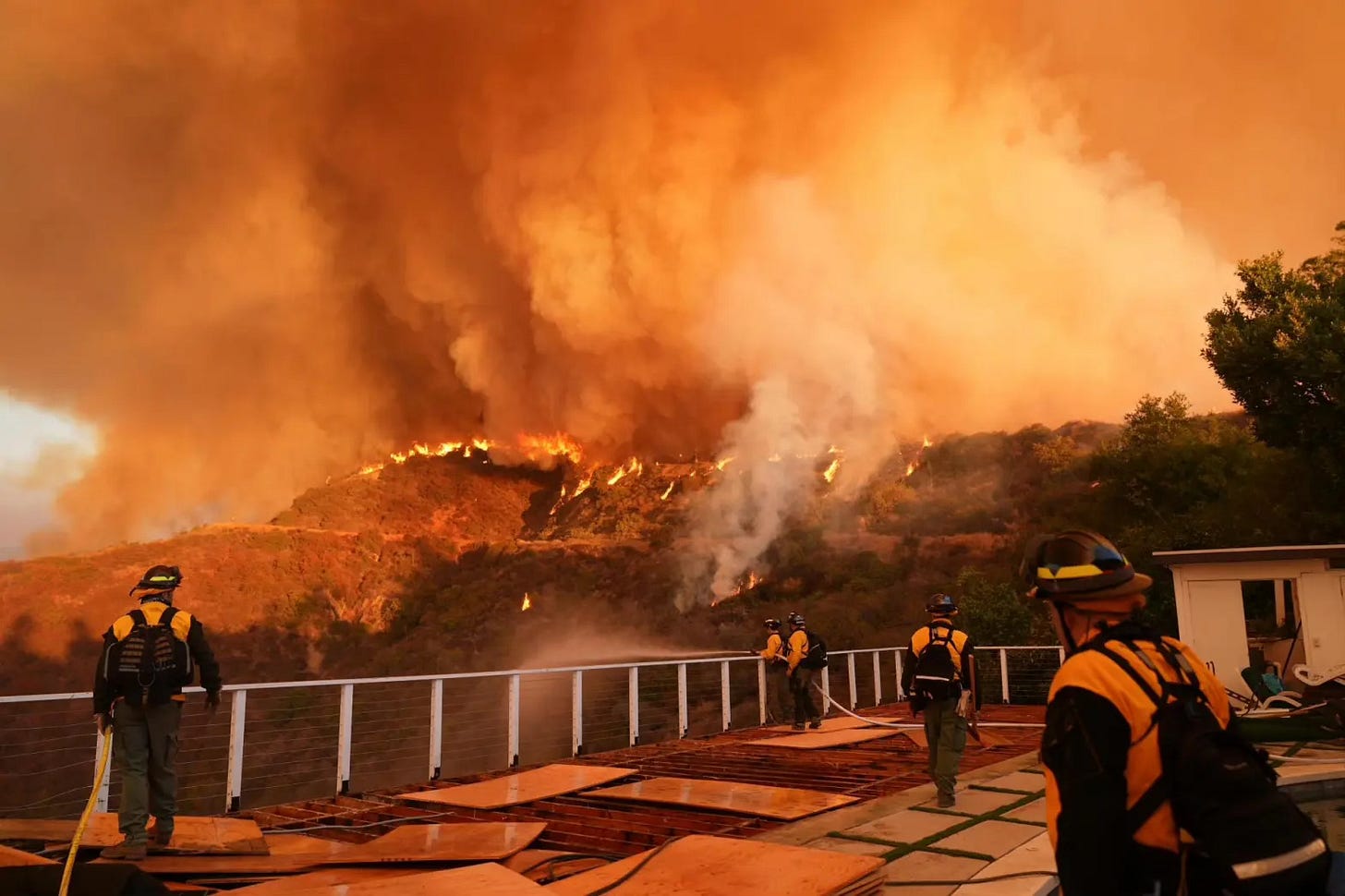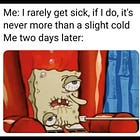Wellness Debrief 004: Baby Formula Recall Widens, AI Targets Medicare, and Climate Risks Are Growing
Woosahhh.
If you find value in this work, consider subscribing or upgrading to a paid subscription so I can keep making more of it.
I’d also love it if you filled out a quick, 100% anonymous survey to tell me a bit about who you are and what you love (or don’t) about Healthy Futures.
Your support keeps this going and truly makes a difference. Thank you for being here.
This week serves up a dizzying mix of “wait, what?” and “of course that’s happening.” The infant-formula recall keeps expanding as botulism cases climb, and the Trump Administration is gearing up to let AI help decide who gets coverage for certain Medicare procedures and who doesn’t. Climate projections paint a mid-century America warped by disaster and inequality, while public health reporting tracks rising premature deaths, shifting cancer patterns, and the small daily behaviors—such as scrolling, light exposure, and what’s on your plate—that quietly move the needle on well-being. It’s a lot, but it’s the landscape we’re navigating.
Let’s get into it.
Infant Formula Recall Expands as Botulism Outbreak Grows (NYT) — ByHeart has widened a nationwide, voluntary recall of all its baby formula products after at least 15 infants across 12 states were hospitalized with botulism suspected to be linked to the brand.
AI Will Soon Have a Say in Approving or Denying Medicare Treatments (KFF Health News) — Starting on January 1, in select states, the WISeR Model pilot will utilize AI to handle Medicare prior authorizations—a process that requires clinicians to obtain approval from the insurance company before performing specific procedures and tests or prescribing certain medications. The goal is not to expedite or streamline approvals, but to save the Trump Administration money allegedly wasted on “low-value” services by denying care to Medicare recipients.
What Climate Change Will Do To America by Mid-Century (The Atlantic) — Acceleration in climate-driven disasters, policy rollbacks, and economic inequality may leave parts of the U.S. uninhabitable by 2050. Unfortunately, federal policy signals a deliberate shift toward amplifying the impending climate doom rather than mitigating it. This piece explores what the country could look like based on areas where climate change is already causing significant damage.
More people are dying before they turn 65. Who it affects, and what it means. (The Washington Post) — Premature deaths among adults aged 18-64 increased by 27 percent from 2012 to 2022, with Black adults bearing a disproportionately higher burden and states like West Virginia, New Mexico, and Mississippi facing the worst rates. The culprits? Policies that undermine human well-being, an inadequate social safety net, and the uniquely acute stress of living in the U.S.
FDA Strips Health Risk Warnings from Menopause Hormone Therapy (Scientific American) — Black-box warnings have been removed from many menopause hormone-replacement medications, reversing a prior standard that linked these treatments broadly to increased breast cancer, heart disease, and stroke risks. Whether or not this was a good call is up for debate.
12 Ways To Combat ‘Brain Rot’ From Social Media Use (Health) — Reducing social‑media scrolling, practicing mindfulness, staying physically active, reading daily, avoiding multitasking, and more are habits we can all stand to build. Mental wellness isn’t just about mood or stress. It also involves our cognitive hygiene, especially in the era of endless digital stimuli.
How to avoid seasonal depression, according to the expert who discovered it (The Washington Post) — Seasonal Affective Disorder, or, as I like to call it, the SADs, affects about 5 percent of Americans annually. It is primarily triggered by reduced daylight in the fall and winter months, resulting in symptoms such as low mood, fatigue, and excessive sleepiness. As the days shorten, this article serves as a timely reminder that light exposure is just as crucial to overall wellness as diet and physical activity.
The Case for Making Sex Part of Your Wellness Routine (Elle) — Sex is finally entering the spotlight in wellness culture. It’s increasingly being recognized as part of the overall wellness ecosystem, especially for women experiencing perimenopause and menopause, and the author notes that satisfying sex has been linked to better mood, cardiovascular health, and stress relief.
Stop Taking Melatonin as a Sleep Aid, Say Sleep Doctors (TIME) — A supplement commonly framed as a harmless “natural” fix for sleep now raises serious questions about safety. Still, more data are needed to assess the long-term effects of melatonin on the body.
Why we should eat beans every day — and which are the healthiest (The Times) — So happy that the humble bean is stepping into the spotlight as a foundational and mighty well-being warrior! Low bean intake contributes to premature death related to specific causes, and legumes like chickpeas, kidney beans, and soya beans support heart health, gut microbiome diversity, and metabolic regulation.
You should also check out November’s Living A Better Life Resources for more information on how to navigate well-being during the colder months.
The Ozempic effect is finally showing up in obesity data (Vox)
What’s Better: One Long Walk, or Lots of Short Ones? Science Just Confirmed the Answer (Oprah Daily)
An Alzheimer’s pill appears to protect some in a high-risk population (NPR)
Lung cancer is becoming more common among young, healthy women. Here’s why. (USA Today)








